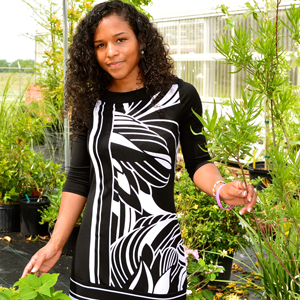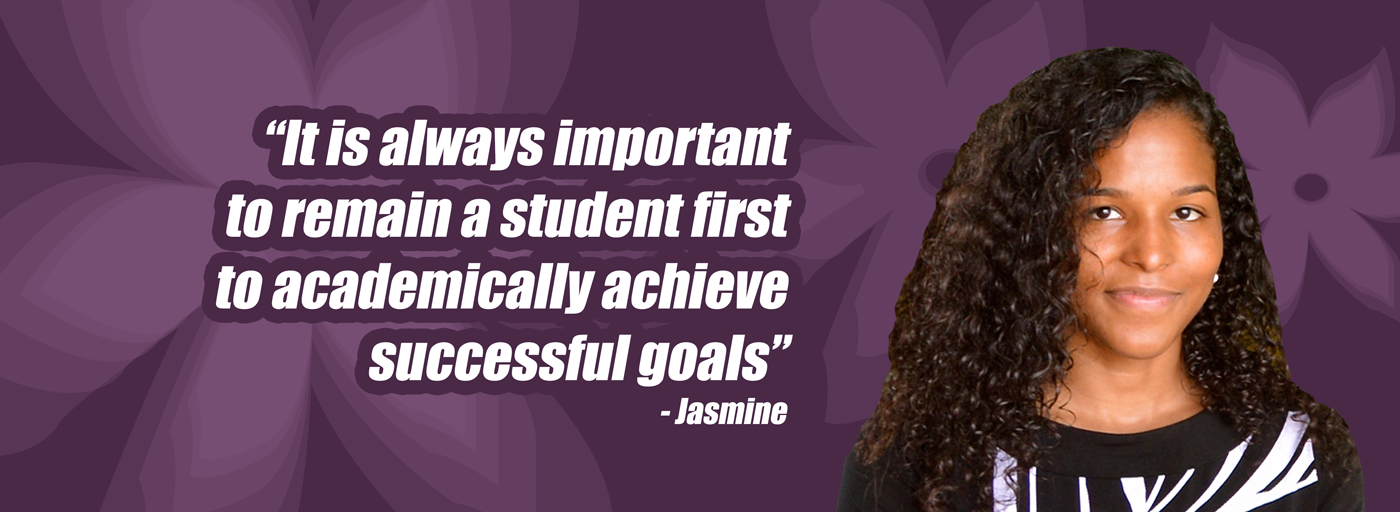Written by Jasmine Hayes, 2014-2015 CAHS Ambassador
I am studying plant and soil sciences and continuously learning more options for applying such education. I think it is logical to research about hot topics in plant breeding because there isn’t enough plant breeders; especially for the generation to come due to lack of students applying to agricultural programs. There is going to be a food shortage so having more plant breeding will help produce more food. Wouldn’t it?
I think we should challenge more youth to look into plant breeding since it is not actually genetically modifying organisms; it is more of a hybrid structure than to process genetically modified organisms. GMOs are an issue because supposedly it changes or messes with the genetic make-up in your body. The youth should be informed about this and look into studying how to produce their own food or go into a career that will help benefit themselves and the nation by conducting crop production or plant breeding.
I was learning in class from the help of YouTube, how plant breeding is a traditional practice for more than 100 years. In the video, it stated that plant breeding was more natural. There were no added chemicals or anything. It was more of grafting two different plants together and creating a hybrid. A mixture of two plants to create a new food is part of plant breeding. For example watermelon can be improved to become a healthier or larger watermelon through plant breeding.
I like to spend more time learning about cross breeding and inbreeding plant genetics and may also go to graduate school for plant breeding and genetics. I think Iowa University is a good pick or Penn State to further my interests in the agricultural technique. It will help coming from a Historically Black College University (HBCU) to go to a Predominantly White School (PWI) to have a different educational experience and develop a more diverse background. Penn State has plant sciences for a master’s degree. Texas A&M University does too, but I am not sure of going there. Plus I like to get away from home for a more profound experience. The tuition may be a higher cost as an out-of state student but there is opportunity to apply for scholarships for students who reside out of state. There are a host of scholarships you just need to search diligently to find them: transfer students, being left handed and more. Go to the websites of the schools and checkout their scholarship department or go online and Google for scholarships.
I encourage any other non-plant science major to look into other paths than what you know now, simply because there is more out there that might match your interest a bit more than the original plan. There are several industries and opportunities that the school doesn’t mention to you right away if ever, because sometimes students don’t tune in during class or read enough flyers that are passed round campus. Some students don’t even go to class. As a student you have to be mindful that you’re in college and there is more to offer than a degree while you are in school, take advantage of scholarships and other opportunities, even join a student organization to put on your resume and gain people skills that you will need to utilize in life. You can ask your advisor, dean, a professor, or another student.
Here is the link to a video suitable for students who are interesting to know more about plant breeding and genetics. https://youtu.be/pbRk64bc03c


